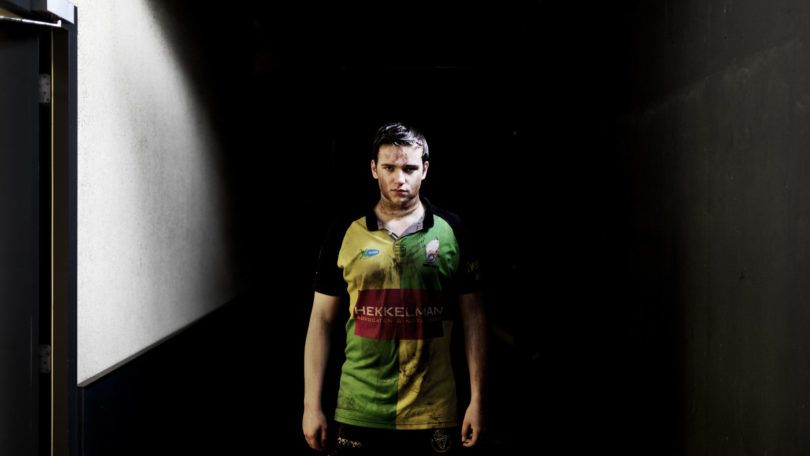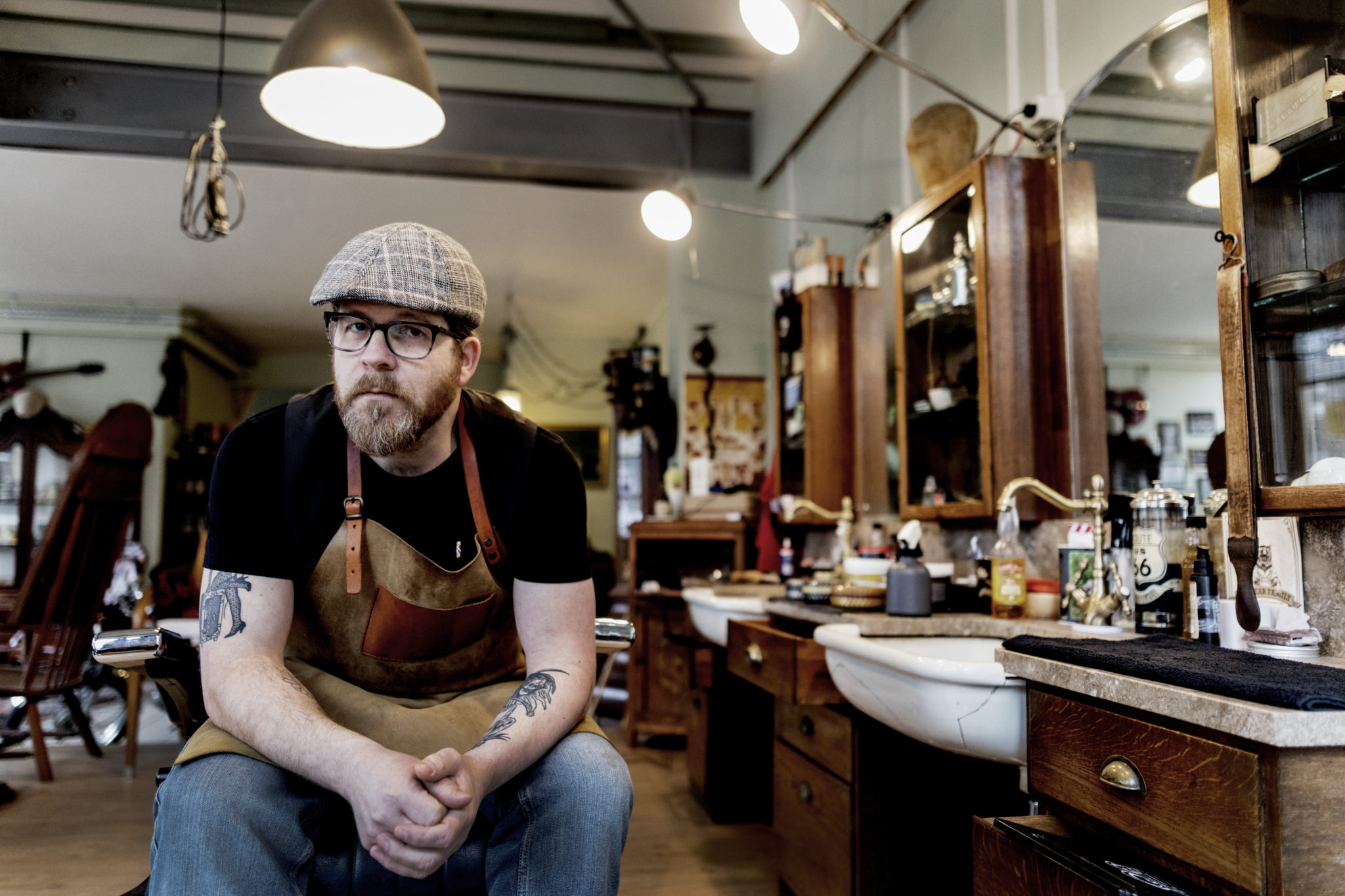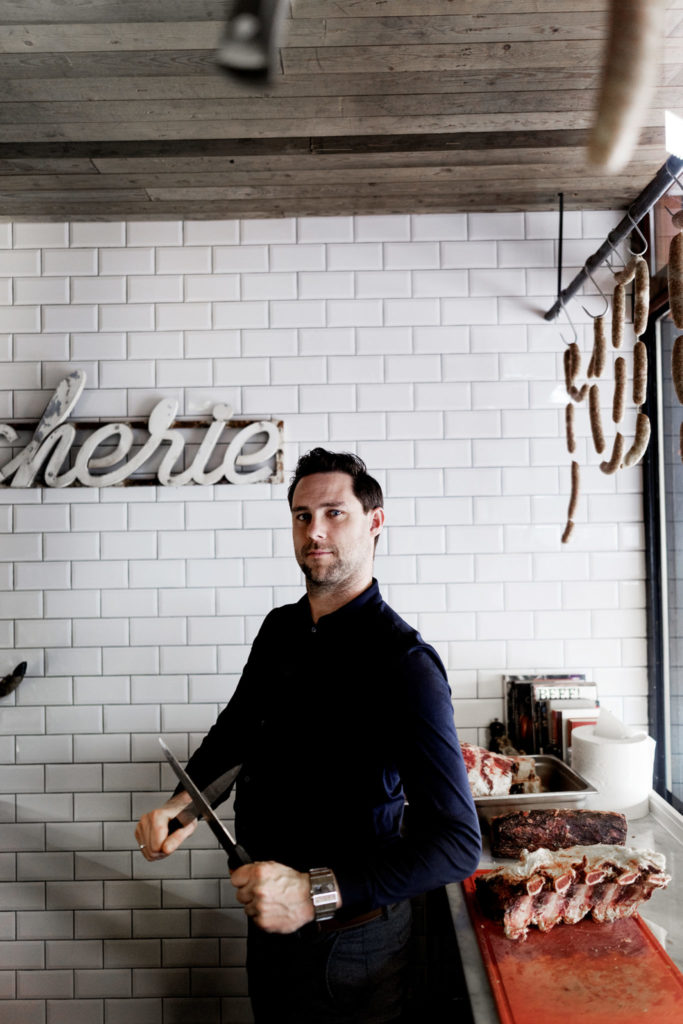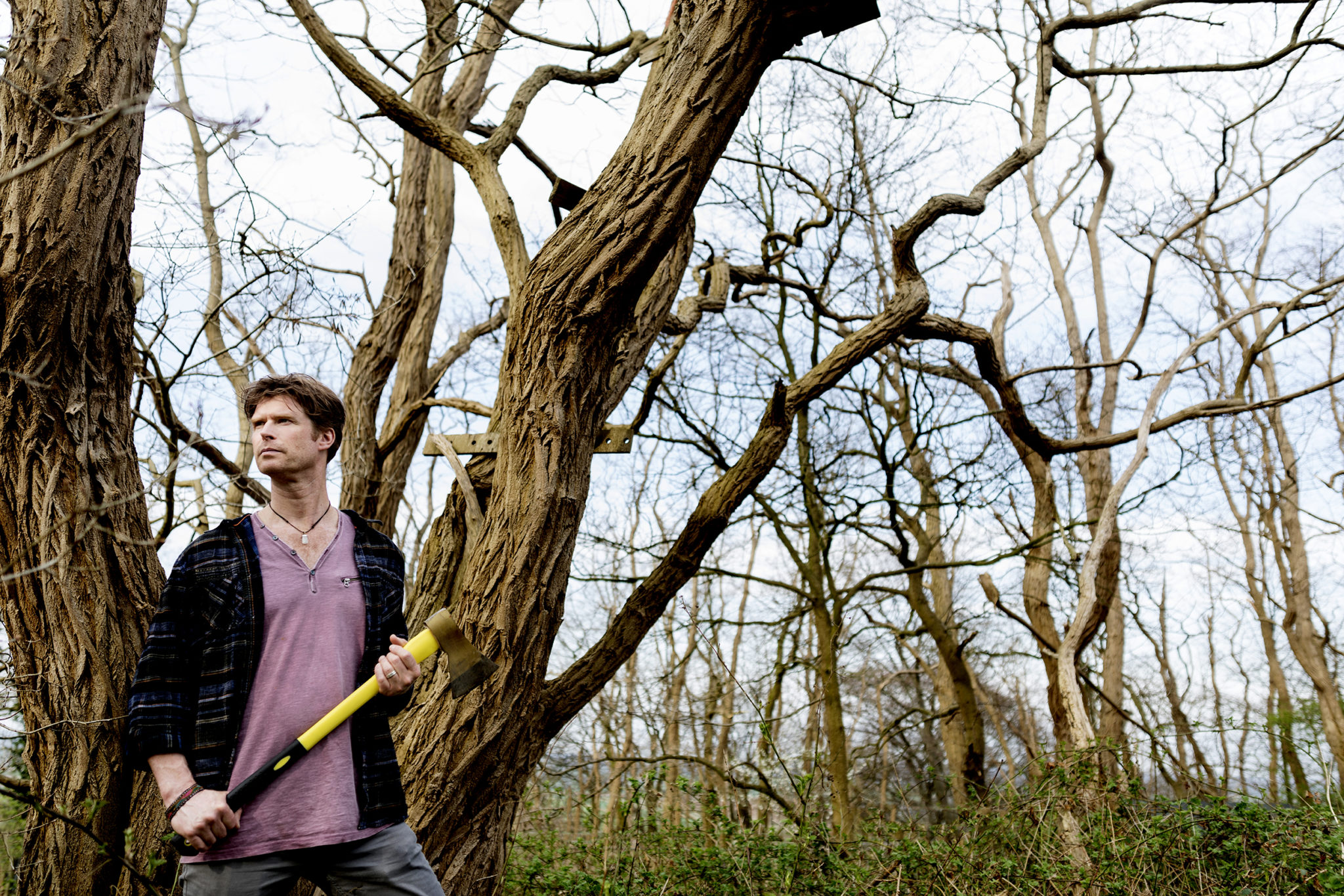Will the real man please stand up?
-
 Bob Fleer. Photo's: Duncan de Fey
Bob Fleer. Photo's: Duncan de Fey
In women-dominated Nijmegen feminisation is spreading like wildfire. Reason enough for Editor Mathijs Noij to go in search of the last men in the city on the Waal.
Let’s be honest: as men we’re losing ground left and right. Feminisation is spreading like wildfire in women-dominated Nijmegen. PhD students and professors? Usually women – especially in Nijmegen. The students with the highest grades? Again, not men. As a male editor, I’m clearly in the minority at VOX, under the auspices of a female editor-in-chief.
In Nijmegen city centre, men also have fewer and fewer choices. On a Saturday afternoon, we can be found stumbling around concept stores and salad bars – not exactly our favourite hang-out! Only to please his other half will a man ever sink his teeth into a quinoa salad with chickpeas and spring onions.
The days when football clubs were a safe haven, where men could immerse themselves in a micro-culture of dried sweat, frikandel with mayonnaise and dirty jokes, are long gone. There’s a waiting list for the five (!) women’s teams in the local student football association.
Maybe I shouldn’t look to football – where Dutch women now outperform the men – but to another sport. One associated with blood, sweat and tears, and shouting men, preferably bearded and broad-chested.

Macho behaviour
I pay a visit to student rugby association Obelix, with its 150 members. Here it’s still mainly men who sport the club’s green-yellow colours. It’s a place for die-hards. ‘Yes, we sometimes get into fights,’ says President and Political Science student Bob Fleer. ‘But after the match we cheer three times for our opponents and the referees, and then we go and drink a beer together.’
Rugby is a culture that unites, but it can also scare people off. ‘Macho behaviour and shouting are part of the deal. It’s how you express yourself, and rugby is an intensive physical sport,’ says Fleer. Theirs is not necessarily a women-unfriendly culture, says Fleer, although the other sex does have to bear the brunt. Fleer: ‘Do you know the song Walking Down Canal Street? We sing it a lot. It’s about a man looking for a hooker.’ The nice thing according to Fleer is that rugby women don’t take it personally. Instead they come up with a creative retort. ‘They sing about men too drunk to ejaculate.’
This is typical of rugby culture, says Fleer. ‘You’ve got to be tough. Rugby is all about absorbing shocks, on and off the field. If you make a remark in poor taste, you can expect to get one back.’ Also from a woman, emphasises the President. ‘I see rugby women as very emancipated. They certainly have a sharp tongue.’
Ducati motorbike
If you look carefully, Nijmegen city centre still has a few mini-havens for men, places to soothe the ache of the male escapist. My search then takes me to Lange Hazelstraat, where men can be found peering into the display window on a shop on the corner of Joris Ivensplein. No, I don’t mean the red windows on the Nieuwe Markt, but Nozem’s 6511, where you can have your beard and moustache trimmed. What’s there to look at? A Ducati motorbike, among other things. Chesterfield sofas, an electric guitar on the wall, and posters by rock-‘n’-roll icons like Johnny Cash complete the nostalgic longing for an era when men had the final say.
Barber Mickel Moors was inspired by his Rotterdam colleagues at Schorem. This barber shop formed the basis of a small revolution in the barber’s craft. ‘At Schorem, women aren’t even allowed inside,’ says Moors. ‘I don’t take it that far, but I only serve men.’

Schorem’s lesson, with which Moors concurs, is that real men can look well-groomed too. ‘Not so long ago, you’d be dismissed as metro, or gay. Luckily those days are over now.’ Moors himself wears (among other things) a flat cap, waistcoat and cowboy boots. ‘This is who I am. I always dress like this – also when I go to the pub.’
As a barber Moors spends his days with men. Of course, this determines the conversations he has. ‘We talk about car-racing, football, women… But it’s never vulgar. The jokes are just a bit harder.’
Plus, not all men are the same. ‘In my opinion, you’re a real man if you make your own decisions. If you know who you are and what you like. Of course I take my girlfriend into account, but if she doesn’t like my favourite shirt, I’ll still wear it.’ This is something Moors sometimes misses in men these days. ‘They sit in the chair and say their woman didn’t like their haircut. I think to myself: ‘OK, but what did you think of it?’

Tomahawk
Duly noted: as men we shouldn’t be ashamed of spending time in front of the mirror. We’re allowed to dress up for dinner for example. But where do we go, in a women’s bastion like Nijmegen? For the past two years, those who want to avoid quinoa, bulgur and buckwheat salad, can find respite in The Black Fox, a restaurant with its own butcher shop, which claims to serve the best steaks in town. The menu lists dishes with names like dry aged tomahawk, rump steak and picanha. For the lonely vegetarian in carnivorous company The Black Fox serves a pumpkin quiche, but for the rest, meat dominates the menu.
Why do men enjoy sinking their teeth into animal flesh so much, I ask The Black Fox owner Bas Hoebink. ‘Well, I think it’s a primary instinct for people to want to eat meat to survive.’ But Hoebink doesn’t believe this instinct is stronger in men. ‘Maybe it’s just learned behaviour. As a child you see your father light the barbecue. It’s usually men who’re in charge of carving the meat. As a boy you grow up wanting to do this too.’
Although vegetarians are growing in number, and our eating patterns have diversified, Hoebink doesn’t believe humanity will stop eating meat entirely. ‘But we can certainly make more sustainable choices. The meat we serve at The Black Fox, for example, comes straight from the farm.’
But eating meat is certainly not a precondition for being a real man, says Hoebink. ‘Some men feel manly when they eat meat. A beautiful steak is very impressive – especially when it’s charcoal-grilled. But I also know ‘manly men’ who are vegetarians.’
Wood chopping
A manly man – isn’t that what we all want to be? But how do you do it? Ard Luijmes specialises in nascent masculinity and, as founder of Expertise Centre KoningsHart, he offers training courses for fathers and sons. He sums up the importance of the father-son relationship in one sentence: ‘You can learn a lot from women, except how to be a man.’ In other words – we need male role models.
He saw how things went wrong with his own son, he explains. ‘In primary school, he wasn’t happy. His teachers were all women and they didn’t understand him. He wanted to contribute to something big, had lots of energy, but no way to channel it.’ According to Luijmes, this is a problem for many boys in education.
At the same time grown men often struggle in their relationship with their own father. ‘Men look for approval. They want their father to say: ‘I’m proud of you’. But most men find it difficult to say such things.’ A frequently heard complaint from women looking to divorce their husbands is that they don’t want to talk about their feelings, notes Luijmes.

Creating a setting where feelings and sensitivities can be expressed is Luijmes’ way of helping fathers and sons. This can take the form of a few days out in the woods. ‘With men you have to go out and do things. Hike, chop wood. Even sexuality becomes something you can talk about. Boys suddenly discover that their father struggles with the same problems and fears as they do. That their first time having sex was not that great either.’
This lesson can open a boy’s eyes: a man is allowed to be vulnerable too. In fact, he has to be, in order to be a good role model. Is this the path so many men search for in vain, the one that leads to true masculinity? Luijmes laughs: ‘It does make life a lot easier, that’s for sure.’
Back at VOX, I look around. What did I learn on my quest? How can I hold my head high as a man around here? I suspect singing women-unfriendly songs will not strengthen my position. Being more open about my feelings to become a role model? But for whom? With more questions than answers, I take a walk to the local café and order a beer. With ‘bitterballen’ please!



